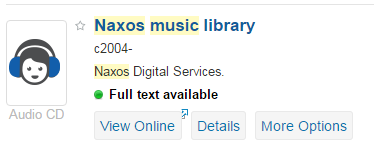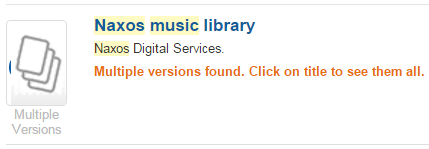Home » 2016 (Page 5)
Yearly Archives: 2016
Popular OneSearch searches in 2015
The year 2015 marked the first full calendar year during which we had our discovery system, OneSearch, up and running across the CUNY libraries. It was a big year, with over 3.7 million searches performed across the University!
If you’re curious about the types of searches performed in an individual campus’s instance of OneSearch, you can access the back office and find all kinds of reports, statistics, and analytics about our users’ experiences with and behaviors within OneSearch. (More information about accessing OneSearch reports is available on the OLS Support Site.)
However, we think it’s also fun to see the big picture! The following is a list of the top search term at each campus (and the CUNY-wide OneSearch instance) between 01/01/2015 and 12/31/2015, organized by the number of times the query had been searched at that library:
henry ford constribution (3,997)
bibliographic and web tools for alternative media. (609)
interpersonal space (606)
gentrification (455)
stereotype threat (446)
spider silk treat damaged nerves (412)
arranged (392)
eliot t s / prufrock (351) *
spread of christianity (285)
fatherless children (265)
self awareness (244)
climate change (238)
students with traumatic brain injury (187)
who moved my cheese (183)
your college experience (162)
schmidt, elizabeth. peasants (161)
ocd treatment (122)
globalization (115)
public housing race poverty (98)
death penalty (58)
pro choice (54)
miss america pageant (31)
* In the reports, slashes (“/”) indicate separate search fields used within the “Advanced Search” screen.
Feel free to peruse the OneSearch back office for local statistics and check out the OLS statistics dashboard for more number-y goodness!
Batch Loading of Serials Invoices into Aleph
‘Tis the season for libraries to receive larger invoices (from EBSCO and others). This is just a quick reminder that Aleph can batch load inbound electronic invoices.
The campus should always check these invoices to see if they appear to be correct. Several areas where problems can arise:
- insufficient budget allocations
- an encumbrance not already added for the current fiscal year
- vendor has made a mistake with the invoice itself
- invoice batch file is only available to download for 30 days
Please submit a ticket to the CUNY Service Desk ([email protected]) stating that the invoice file is ready to be loaded, along with the notification from EBSCO. (The notice has key information, such as the file name and invoice number.)
For more details, please see the OLS Support Site.
New Feature: How does access to this work benefit you?
Open access advocates, myself included, often talk about public scholarship for the public good. Open access advances the pace of scientific progress, promotes interdisciplinary research and collaborations, and allows researchers to share their work with those who don’t otherwise have access to it. We’ve all had the experience of hitting a paywall, and it’s not hard to believe that members of our local and global communities do too.
The Budapest Open Access Initiative, regarded as one of three declarations that defined and shaped the movement, establishes the public good as the foundation for open access:
An old tradition and a new technology have converged to make possible an unprecedented public good. The old tradition is the willingness of scientists and scholars to publish the fruits of their research in scholarly journals without payment, for the sake of inquiry and knowledge. The new technology is the internet. The public good they make possible is the world-wide electronic distribution of the peer-reviewed journal literature and completely free and unrestricted access to it by all scientists, scholars, teachers, students, and other curious minds. Removing access barriers to this literature will . . . lay the foundation for uniting humanity in a common intellectual conversation and quest for knowledge.
But who is the Public? How does CUNY Academic Works benefit them? We want to know!
Working with the team at Digital Commons, the Office of Library Services set-up a new feature in Academic Works: a feedback form. PDF cover pages in select series now include a question: “How does access to this work benefit you? Let us know!” Readers that click the hyperlink are directed to a feedback form that asks for some basic information as well as permission to publicly share their comments.
Before rolling it out across the repository, this feature was tested on a collection of dissertations at the Graduate Center. Monthly usage reports let us know this content gets a lot of attention, but who is downloading and reading it? How does it contribute to the public good? I can’t tell you about each download, but I can now tell you how open, public access to “The Contributions of Earl “Bud” Powell to the Modern Jazz Style” benefit one person:
I am a 52 year old engineer who has been playing jazz piano since the age of 10. I am delighted to find this thesis about one of the most important jazz pianists of the 20th century. It includes the *incredible* transcription of “Strictly Confidential,” an amazing piano piece by legendary jazz pianist Bud Powell. I have been looking for a transcription for this piece my entire life, as it is far too complicated for me to hear with my basic ears…
This is the first of what I expect to be many stories that demonstrate the benefits of open access to the public. Future feedback will be relayed to campus repository administrators and posted to Open Access @ CUNY when permissions allow.




